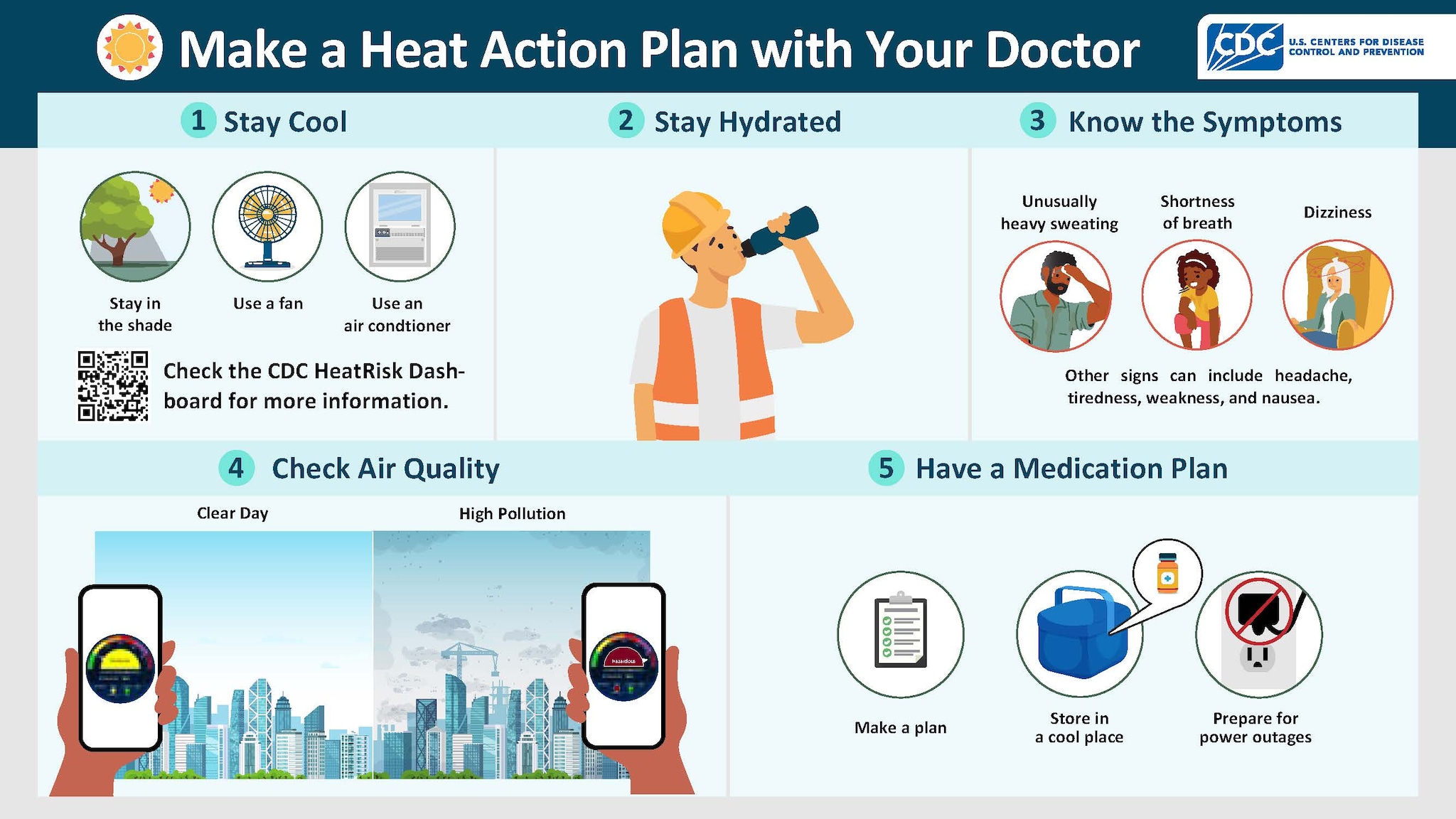Key points
- Protect yourself and others when it's hot outside by staying cool, staying hydrated, and knowing the symptoms.
- Hot days can affect anyone. If you are pregnant, a child or teen with asthma, or have a heart condition or other chronic health conditions, heat can make your health worse.
- Work with your doctor to create a Heat Action Plan.

Stay Cool
If you are outside, especially for a long time, and the HeatRisk is red or above, you can:
- Stay in the shade as much as possible.
- Take breaks when you can.
- Do outdoor activities during the coolest parts of the day or evening, if possible.
When you are indoors, you can:
- Use fans, but only if indoor temperatures are less than 90°F. In temperatures above 90°F, a fan can increase body temperature.
- Use air conditioning or find a location that has one by dialing 2-1-1, visiting the National Center for Healthy Housing's Cooling Centers by State page, or by contacting your local health department or emergency management agency.
Check on your family, friends, and neighbors, especially if they have chronic medical problems or live alone. Check on pets.
Stay Hydrated
Drink plenty of fluids
- Carry a water bottle. Drink and refill it throughout the day.
- Consider limiting beverages high in sugars and sodium, caffeine, and alcohol.
- Check your urine color. When it's light yellow or clear, it usually means you are drinking enough water.

Know the Symptoms
If your body gets too hot, you can get sick. Know the symptoms of your body overheating and know when to seek medical care.
Symptoms can include:
- Muscle cramping
- Unusually heavy sweating
- Shortness of breath
- Dizziness
- Headaches
- Weakness
- Nausea

Check your local HeatRisk and Air Quality
Enter your zip code on the CDC HeatRisk Dashboard for the heat risk forecast in your area and take recommended actions to protect your health.
Plus, check air quality levels – so you can plan your week with your health in mind.
Have a plan for your medicine
Many medicines can make you dehydrated or overheated on hot days. Also, some medicines need to be kept out of hot places.
- Don't stop or change your medicines until you talk to your doctor.
- Heat can cause power outages. Have a plan for what to do with refrigerated medications and electronic medical devices.
- Store your medicines properly- some may need to be kept out of hot places.
For Those at High Risk
Although anyone at any time can suffer from heat-related illness, some people are at greater risk than others. Check on your family, friends, and neighbors, especially if they live alone or have chronic medical problems.
Some groups may have to take additional action on hot days, including:
- People, especially children, with asthma.
- People with heart disease.
- Pregnant women.
- People 65 years of age or older.
- People who are working or exercising outside in the heat.
- Infants and young children.

